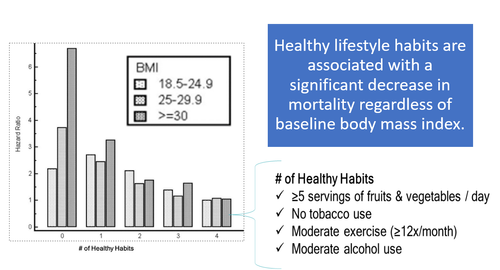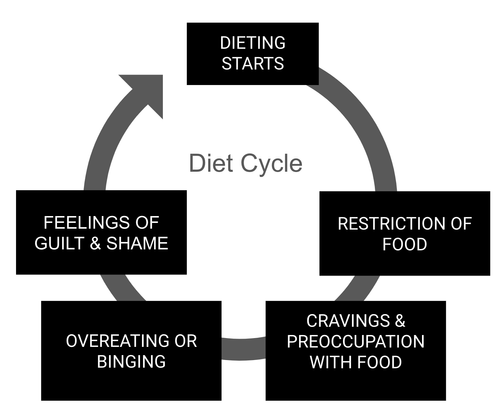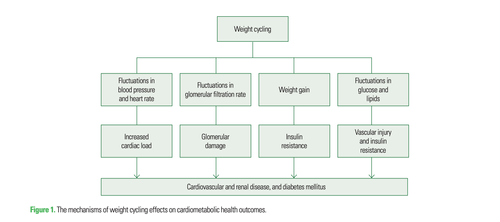Why a Non-Diet Approach?
Health is NOT Dependent on Weight
Research shows that certain behavior changes improve a person’s health status, regardless of weight. In a study of over 11,000 men and women, mortality rates decreased with more healthy habits, regardless of a person’s body mass index (BMI).
*Click the image for full research article
Bodies Come in Different Shapes and Sizes
Though diet and exercise are often blamed for a person’s body, it is actually a lot more complicated. Genetics, medical conditions, medications, access to food, access to physical space, mental health, food preferences and age also play a role.
Diets do NOT work
Many diets are inherently restrictive, focusing on cutting out specific food groups or severely reducing overall calorie intake. While this may lead to short-term weight loss, it's often unsustainable in the long run, leading to feelings of deprivation and ultimately causing individuals to revert back to their old eating habits at which point lost weight is regained and often additional weight is added.
Harmful effects of weight cycling
Repeatedly losing weight and regaining weight are worse for metabolic health than staying at a higher weight. Research shows that weight cycling increases the likelihood of developing chronic illnesses, such as cardiovascular disease and diabetes.
*Click the image to access the research article
Negative Impact of Diet Culture on Kids
Dieting is associated with food preoccupation, distractibility, fatigue, and a tendency to overeat. Dieting also has been shown to impact mental health. Research shows that kids participating in a structured weight-loss program had a decline in self-esteem. Additionally, dieting is associated with a five-fold to 18-fold increased risk of developing an eating disorder. Dieting is rarely effective in the long term and actually often leads to more weight gain.
*Click the image to access the research article







